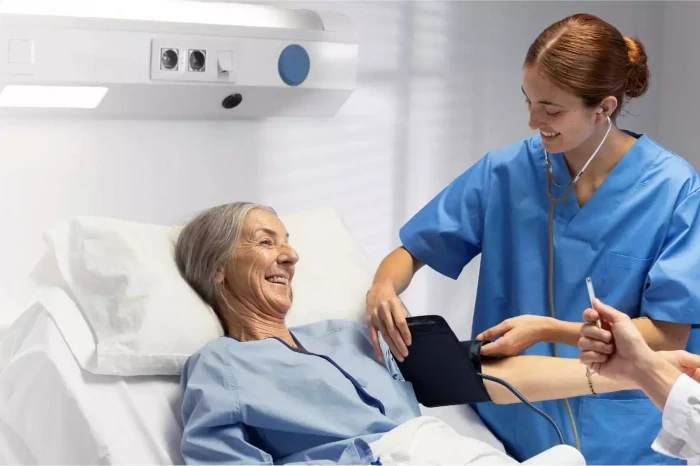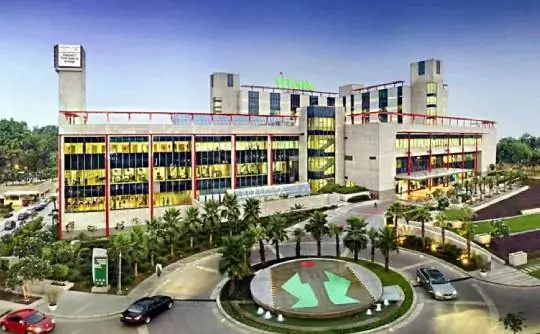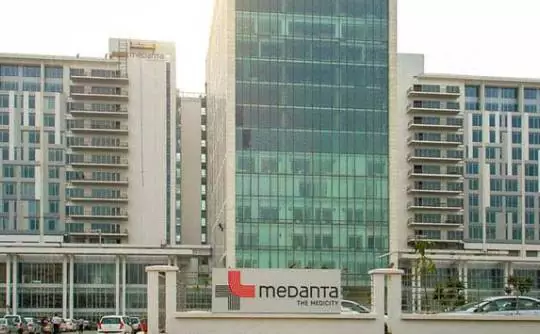

Pancreas Transplant cost in India starts from US $25,000 and varies depending on your medical condition and history, surgeon, facility and the city where you choose to get the surgery done.
An important expense when it comes to your Pancreas Transplant in India is going to be your Surgeon's fees. IndiCure recommends only experienced, skilled, board-certified surgeons who are capable of delivering successful heart surgeries. Although the charges may vary depending on the experience of the surgeon, you can be completely assured of being in safe and experienced hands when you choose pancreas transplant in India with IndiCure.
With the hopes of improving patient care, new techniques and technologies are often introduced to the surgical process. Such innovative advancements in the surgical approach can increase costs.
Having your Pancreas Transplant in an accredited surgical facility by skilled and qualified medical staff is a critical factor. Moreover, the geographical location of this facility also affects the initial quote. But, IndiCure provides you with a projected estimate that will be affordable.
The surgery-related expenses include the pre- and post-surgical expenses. The pre-surgical expenses are associated with the age and medical condition of the patient and thus the number and type of investigations required. Post-surgical expenses may include prescription medications and follow-up consultations.
We at IndiCure, understand that you travel with a budget in mind and do not like to be greeted by surprises after arrival in India. We thus club all these expenses and give you the package cost that is inclusive and affordable at the same time.
Your case manager shall give you an estimated cost of your surgery after discussing your medical reports with the surgeon. The final cost, however, shall be confirmed after your consultation with the surgeon.
In fact, we have Special Negotiated Rates with the Hospitals and you can avail Discounted Rates when you choose to Travel with IndiCure.


We Help you Choose the Right Treatment, Surgeon & Hospital

We Arrange Video/Telephonic Consultation with the Surgeon

We Assist you with Visa & Accommodation

We Receive you at the Airport and Drop you at Hotel/Hospital

We Assist you the at Hospital & Provide Post Operative Support
Years of Experience
Happy Clients
Countries Patient Treated
Most Affordable Price

Gurgaon
Fortis Memorial Research Institute (FMRI), the flagship hospital of Fortis Healthcare, is a multi-specialty, quaternary care hospital and is counted among the best hospitals in India and the world. The hospital is considered as "Mecca of Healthcare" and a referral hospital, not only in the entire Asia Pacific but much beyond.
The hospital boasts of an enviable International faculty- the clinicians considered to be among the best doctors in the world and even specialty nurses offer nothing but the best in clinical care. The hospital has the most modern, state-of-the-art, cutting-edge technology in the hands of the most technically sound technicians, who offer clinical excellence beyond comparison.

Gurgaon
The Medicity is one of India's largest multi super-specialty institutes located in Gurgaon, National Capital Region (NCR-DELHI). Founded by one of the most renowned cardiac surgeons in India, Dr. Naresh Trehan, Medanta was established with the aim to provide the highest standards of medical care to patients backed by clinical research.
Spread across 43 acres, the institute includes a research center, medical and nursing school. It has 1250 beds and over 350 critical care beds with 37 operation theatres catering to over 20 specialties. Backed by the latest and most advanced technology, the institute is counted among the best medical institution in the world and attracts lots of patients from across the globe.
The pancreas is a tiny organ found near the stomach, intestines, and other organs in the abdomen. It's about the size of a palm. It is behind the stomach and in front of the spine. The pancreas produces digestive juices as well as hormones such as insulin and glucagon, which help the body keep blood sugar levels in check and use and store food energy.
A pancreas transplant is an organ transplant in which a healthy (insulin-producing) pancreas is placed into someone whose pancreas is no longer producing adequate insulin. The healthy pancreas comes from a deceased donor or a partial pancreas from a living donor.
A pancreas transplant may be used to treat type 1 or insulin-dependent diabetes. A successful pancreas transplant will eliminate the requirement for insulin shots, as well as diabetes-related dietary and exercise restrictions, as well as the danger of severe low blood sugar reactions. A pancreas transplant can also help manage damage to other organs caused by type 1 diabetes, such as the kidneys, or eyes.
There are three main types of pancreas transplantation:
Pancreas Transplant Alone- For patients with type 1 diabetes who have severe, frequent hypoglycemia but good kidney function, pancreas transplant alone is a good option.
Simultaneous pancreas-kidney transplant (SPK)- When the pancreas and kidney are transplanted from the same deceased donor at the same time, this is known as a simultaneous pancreas-kidney transplant (SPK). End-stage renal disease (ESRD) or end-stage kidney disease, which may require a kidney transplant, is one of the most devastating complications of type 1 diabetes. You must take antirejection medication for the kidney and continue to take insulin if you have a kidney transplant without a pancreas transplant. Diabetes has the potential to harm the new kidney as well as other organs. Successful combined kidney-pancreas transplants reduce diabetes deterioration and eliminate the requirement for insulin therapy in newly transplanted kidneys. A patient's replacement kidney and pancreas would come from the same donor in the best-case scenario.
Pancreas-after-kidney transplant (PAK)- When a cadaveric, or deceased, donor pancreatic transplant is performed after a previous, and different, living or deceased donor kidney transplant, it is known as pancreas-after-kidney transplant (PAK).
A pancreas transplant may be considered a possible treatment option if one or more of the following apply.
Evaluation and matching procedure:
Finding a donor can be difficult at times. The pancreas is frequently removed from someone who has been certified brain dead but is still on life support. The donor must meet certain transplant requirements, such as being healthy and of a certain age. The donor's organ must also be immunologically compatible with the recipient's body. To lower the chance of organ rejection, this is critical.
The pancreas can also be obtained from a living donor if a matching blood relative is willing to donate part of their pancreas. In these circumstances, donors donate a portion of their pancreas rather than the entire organ.
Both the patient and the donor are evaluated and put through a battery of tests prior to the transplant surgery to determine that the donor is healthy enough to survive the procedure. The exam comprises blood tests as well as compatibility matching. EKG, Echo, Chest X-ray, Abdominal CT scan, CT Cholangiogram, physical assessment by a physician, hepatologist, and psychiatric exams are among the additional tests and investigations.
Pancreas transplant surgery with living donor:
Depending on whether you are getting a pancreatic transplant alone or a kidney and pancreas transplant at the same time, pancreas transplant surgery normally takes three to six hours.
The donor's pancreas is first surgically removed-a part of the body and tail of the pancreas is removed.
The first step is to make an incision down the center of your abdomen. The new pancreas and a little section of the donor's small intestine are surgically implanted into your lower belly.
Your small intestine or gall bladder are joined to the donor intestine, and the donor pancreas is connected to blood arteries that also feed blood to your legs. To help digestion, your own pancreas is left in place.
If you're also getting a kidney transplant, the new kidney's blood vessels will be connected to blood vessels in your lower belly. The ureter - the tube that connects the kidney to the bladder - of the new kidney will be linked to your bladder.
The recovery process following a pancreas transplant is a long and gradual one that tries to gradually improve the patient's health and fitness. Resuming normal daily activities could take up to three months.
You'll need to travel to India approximately 2-3 weeks before the surgery for pre-operative testing and paperwork, and you'll need to stay for around 6-8 weeks afterward. As a result, you'll need about 12-14 weeks to fully recuperate from pancreatic transplant surgery in India.
Your replacement pancreas should begin working right away, and your old pancreatic will continue to operate normally.
If you receive a new kidney, it will produce urine in the same way that your healthy kidneys did. This usually begins right away. However, it may take several weeks to return to normal pee production in certain circumstances.
Close monitoring is required for three to four weeks after you leave the hospital. Following your pancreas transplant, you'll need to take a number of medications. Immunosuppressants are medications that prevent your immune system from attacking your replacement pancreas.
After a successful pancreas transplant, your new pancreas will make the insulin your body needs, so you'll no longer need insulin therapy to treat type 1 diabetes.
Diabetes cure rate is 80% at 10-years and the chances of a diabetic being alive at 25 years after a simultaneous kidney pancreas transplant is 70% versus 27% if the diabetic went in for a kidney transplant alone.
We at IndiCure completely understand your concerns and it is always our endeavor to provide the best outcome for every patient. Following is the list of questions you must ask before you embark on your journey for Pancreas Transplant in India.
Prepare to answer questions about your:

Type 1 diabetes is the most common reason for pancreatic transplants. This disorder could be cured with a pancreatic transplant. However, because the adverse effects of a pancreas transplant can be severe, it is usually reserved for patients with substantial diabetic issues.
Pancreas transplants are safe and effective, with patient survival rates of >95 percent after one year and >88 percent after five years, and graft survival rates of nearly 85 percent after one year and >60 percent after five years. A pancreatic graft's half-life is now predicted to be 7-14 years.
After a pancreas transplant, most people live for years, if not decades. Almost everyone will live for at least a year following, and about nine out of ten will live for at least five years.
Diabetes can be cured with a pancreas transplant, which eliminates the need for insulin shots. Most persons with type 1 diabetes do not undergo a pancreas transplant right after they are diagnosed because of the dangers associated with surgery.
A person without a pancreas cannot survive without artificial insulin injections and digestive enzymes. According to a 2016 research, roughly three-quarters of persons without cancer who had their pancreas removed lived for at least seven years.
Although a living donor can donate a pancreatic segment, most pancreas transplants need the donation of the entire organ from a deceased donor. The donor pancreas must be transplanted into the recipient within 12 to 15 hours of being removed, conserved, and packed for shipment.
Weight loss, diarrhea, stomach discomfort, or bloating may result from removing all or part of the pancreas, which can cause symptoms such as diarrhea, tummy discomfort, or bloating. Pancreatic enzyme replacement therapy can help with digesting issues (PERT).
Enhance your medical journey to India by availing these extra services.
Traveling abroad for medical reasons may be challenging. With our experience of over a decade and working with the best surgeons and top hospitals in India, we help make your medical tour easier and safer for you. We will guide you at every step of the way and make end-to-end arrangements for your surgery, travel, and stay.
Ramandeep Dhaliwal
I had great experience having rhinoplasty through Indicure. Dr. Ruchika from Indicure has helped me in finding best plastic surgeon, answering all my questions...
Read More
Joshua Archer
My name is Joshua Archer I'm from New Zealand, bay of plenty, kawerau I opted for the bypass surgery in January 2023 but planned it in advance for 28 September found IndiCure...
Read More
Kera Ren
Absolutely loved my experience with IndiCure - from first inquiring to meeting the surgeon pre op to my follow up post op. The surgeon was extremely approachable...
Read More
Andreana Paul
Had a wonderful experience. Visited India for my plastic surgery. From sending mails, airport pickup, comfortable accommodation and, to smooth hospital appointment booking...
Read More
Brandi Luce
I had the privilege of using Indicure's services for a cosmetic procedure that I had wanted for a long time but had always been apprehensive about. Ruchika helped me...
Read More
Jade M
Indicure Health Tours went above and beyond my expectations. They helped me with every aspect of my journey and were professional, kind and caring. I was...
Read More
The content on the website (www.indicure.com) is intended to be general information and is provided only as a service. It is not medical advice and should not be taken as medical advice. It should not be used to diagnose or treat a health condition and is in no way meant to be a substitute for professional medical care.
All photographs on our website of before and after results are examples only, and do not constitute an implied or any other kind of certainty for the result of surgery. You are advised to see a surgeon in person to assess what surgery may or may not accomplish for you.
It is also important to keep your expectations realistic and to understand that all surgical procedures carry risks and should never be taken lightly.